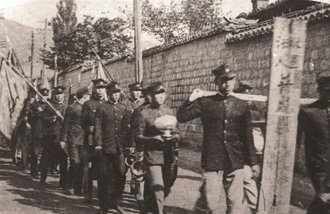The final stand of Japanese ruling party deaf to public opinion
The final stand of Japanese ruling party deaf to public opinion
Posted November. 04, 2024 07:50,
Updated November. 04, 2024 07:50
"They call us a slush fund party, but didn’t the Democratic Party take a massive 200 million yen (about 1.8 billion won)?" A representative from Japan’s Liberal Democratic Party (LDP) raised his voice, making this claim at a campaign event in Tokyo in the final stretch of the House of Representatives (Lower House) election. Like in Korea, Japanese campaign sites see party officials and local politicians make bold statements to energize the crowd. As reported, even the criticism of the opposition by Prime Minister Shigeru Ishiba was a “toned-down” statement. There were numerous other attacks on the opposition that were not reported, with even sharper rhetoric.
The LDP’s mention of the "200 million yen Democratic Party slush fund" dates back to 2009. At that time, Yukio Hatoyama, then Prime Minister, was embroiled in controversy over allegedly falsified donations in his political fund report totaling 200 million yen, a scandal that ultimately led to his resignation after only nine months in office.
Japanese citizens, who have been critical of slush fund issues since last year, were left unimpressed as the LDP responded by saying, "The opposition was dirtier 15 years ago," or "Don’t you remember how chaotic the Democratic Party government was?" The ruling party, full of its own flaws, was begging for votes by criticizing the opposition, making it difficult for the public to respond favorably.
Signs of voter discontent were palpable at the campaign sites. At a market near a train station, as a mention of the "Democratic Party’s 200 million yen" came up, a man in worn clothes, standing at a distance with his arms crossed, muttered, “What are they saying now?” before leaving. Even though former Prime Minister Fumio Kishida, who was on TV daily until three weeks prior, was set to speak, the small area in front of the campaign vehicle remained sparsely filled, barely enough to be considered a crowd. Even as party officials repeatedly announced, “Former Prime Minister Kishida is currently speaking,” passersby showed little interest, hurrying on their way.
A well-known saying among Korean political reporters also held true in Japan: "In campaign venues, you should report not from in front of the stage but from far outside it." The front of the stage is usually filled with party officials and fervent supporters who will applaud regardless of what’s said. In LDP’s heyday, crowds would gather outside the stage, forming large rings of three or four layers. But this time, even with Prime Minister Ishiba present, barely a single ring of people formed at a distance. Even when prominent speakers came, this was the extent of the crowd. A reporter even witnessed an LDP candidate in central Tokyo, who was implicated in the slush fund scandal, speaking to an empty audience, addressing only thin air.
During Shinzo Abe’s tenure, “Abenomics” fueled an image of “they may have scandals, but are doing well in terms of economy.” Now, the LDP is perceived as incompetent even economically. Amid a “rice crisis,” people are scrambling to buy rice in a developed country in the 21st century. Rice prices, once under 2,000 yen per 5kg, have surged to over 3,500 yen. Unlike Korea’s dramatic displays, such as shaking green onions in protest, Japanese voters quietly delivered their verdict at the polling stations.
In Japan, the LDP is not merely a party representing a specific faction. It is regarded as a “national party,” encompassing everyone from the far-right advocating for constitutional changes for a war-ready nation to progressive voters supporting LGBTQ+ rights. Despite its long-standing role as the “absolute majority” ruling party, seemingly immune to all faults, the LDP faced a resounding defeat for ignoring public sentiment and the people's voice. Though the Asahi Shimbun poll (October 1) showed a party support rate of 33% for the LDP compared to 6% for the Constitutional Democratic Party, the message was clear: citizens were ready to take a metaphorical stick to an out-of-touch ruling party. Any ruling party that refuses to acknowledge its flaws is bound to face judgment, regardless of the country.
Headline News
- Korean business leaders urge a halt to commercial law amendment
- Yoon begins extensive verification for cabinet and staff reshuffle
- Police confirm Pyongyang’s involvement in Ether heist in 2019
- Ukraine fires British Storm Shadows at targets on Russian territory
- Ulsan and Pohang compete to crown Korea’s soccer champions







